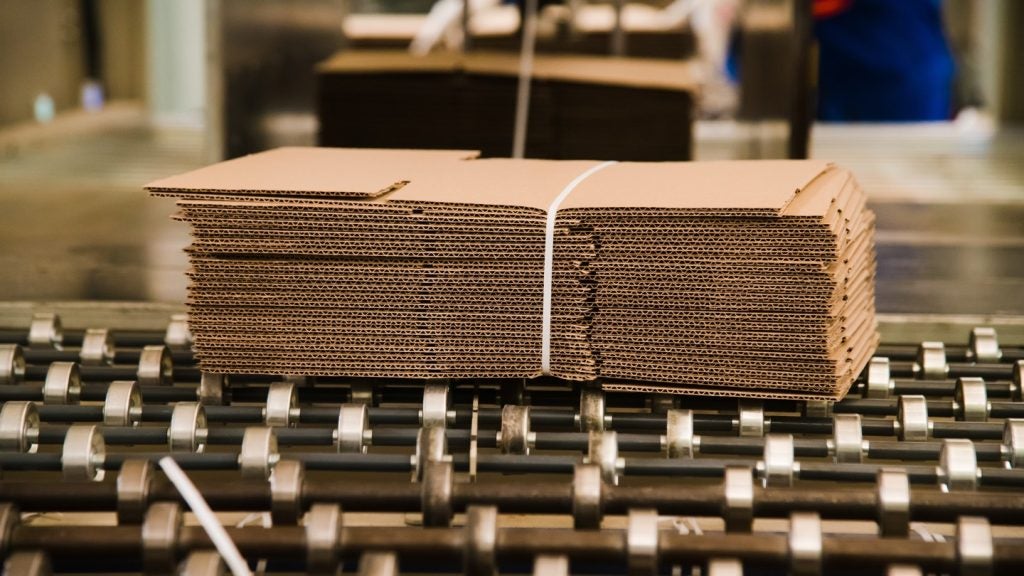
US schools are experiencing shortages in half-pint cartons of milk as a result of Illinois-based packaging manufacturer Pactiv Evergreen failing to meet demand for production.
Pactiv Evergreen describes itself as “the leading manufacturer of fresh food and beverage packaging in North America,” and is responsible for the production of the majority of half-pint cartons used for milk in schools, hospitals and nursing homes in the US.
However, the closure of the company’s paper mill in Canton, North Carolina, in May this year – as announced in the company’s fourth quarter 2022 results on March 6 – has impacted output.
While other suppliers, including Tetra Pak, are working to increase production to fill the supply gap, total production is still falling short of demand.
Tetra Pak told Packaging Gateway: “While Tetra Pak’s chilled gable top carton supply chain has not been directly affected, we have increased overtime in our factory to ramp up production of single-serve chilled gable top cartons. Although we do not currently have the production capacity to fully make up for the unexpected shortage occurring across the market, we continue to meet our contracted order commitments with existing customers.”
Schools across the US are legally obliged to provide milk to students at mealtimes, as part of child nutrition programmes authorized by the 1966 Child Nutrition Act. In its Food Buying Guide, the United States Department of Agriculture (USDA) states that “fluid milk be offered at each breakfast, lunch, or supper meal service.”
How well do you really know your competitors?
Access the most comprehensive Company Profiles on the market, powered by GlobalData. Save hours of research. Gain competitive edge.

Thank you!
Your download email will arrive shortly
Not ready to buy yet? Download a free sample
We are confident about the unique quality of our Company Profiles. However, we want you to make the most beneficial decision for your business, so we offer a free sample that you can download by submitting the below form
By GlobalDataThe supply issues have made the requirement difficult to meet, prompting the USDA Food and Nutrition Service (FNS) to issue a policy memo stating that milk provisions can be paused in exceptional circumstances.
It states: “Although program operators are expected to meet the fluid milk requirements to the greatest extent possible, supply chain disruptions, including disruptions that limit milk variety or affect serving size, would be considered a temporary emergency condition for purposes of this flexibility.”
Matt Herrick, Senior Vice President of Public Affairs and Communications at the International Dairy Foods Association (IDFA) told Packaging Gateway: “It is important to note that this is not a milk supply issue. There are abundant milk supplies across the country and processors are working with schools to ensure all children have access to nutritious milk. It is essential that milk and its 13 essential nutrients remain available to students each day in schools rather than sugary beverages like juice.”
The closure of Pactiv Evergreen’s Canton plant, which made board for milk cartons, saw over 1,000 employees lose their positions. However, the mill had reportedly received several environmental violation notices under Pactiv Evergreen’s management.
More broadly, GlobalData figures show a steady decline in posted jobs at Pactiv Evergreen across the US.
The closure of Canton Mill has likely contributed to the decline since May, but the closure has now come under fire as a result of the carton shortage.
It's a basic at any school meal.... milk. But there's a shortage of milk cartons across the county.
— Rex Hodge (@RexHodge_WLOS) November 8, 2023
Many of them came from the paper mill in Canton which is no longer producing them. The legacy is impacting local schools.
@WLOS_13 #LiveonWLOS pic.twitter.com/YFs1tDOSHK
At the time of publish, Pactiv Evergreen has not responded to Packaging Gateway's request for comment.
Our signals coverage is powered by GlobalData’s Thematic Engine, which tags millions of data items across six alternative datasets — patents, jobs, deals, company filings, social media mentions and news — to themes, sectors and companies. These signals enhance our predictive capabilities, helping us to identify the most disruptive threats across each of the sectors we cover and the companies best placed to succeed.




